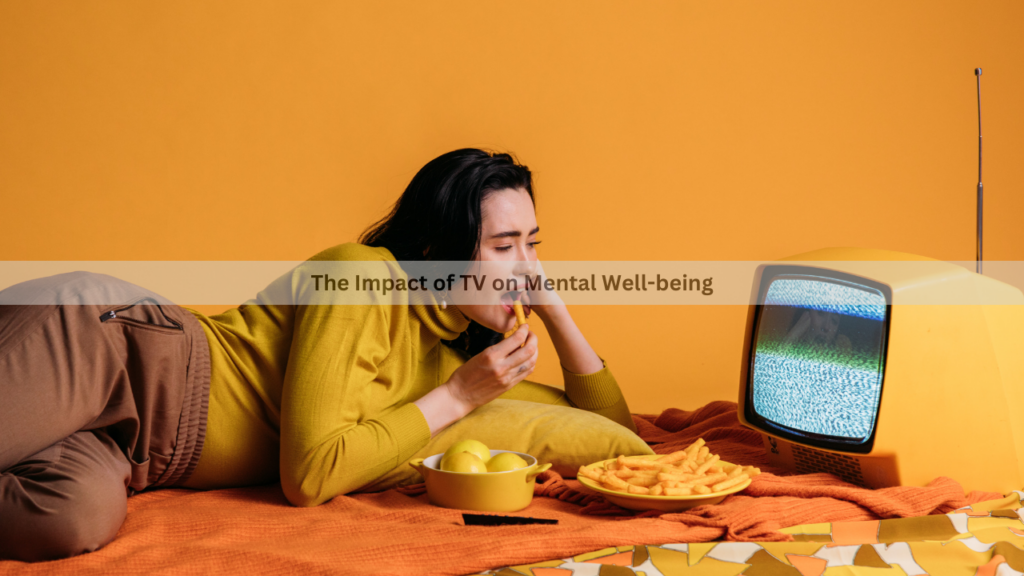Screen Time and Mental Well-being: How TV Impacts Our Minds
posted by: Guest
No Comments »

In the modern age, television has become an integral part of daily life, providing entertainment, information, and a temporary escape from reality. However, the impact of TV on mental well-being is a topic of growing concern among psychologists and health experts. Understanding how screen time affects our minds is essential for maintaining a balanced and healthy lifestyle.
The Allure of Television
Television’s appeal lies in its ability to captivate and engage viewers with compelling narratives, dynamic visuals, and relatable characters. For many, watching TV serves as a way to unwind after a long day, offering a mental break from the stresses of daily life. However, this seemingly harmless activity can have significant implications for mental health.
The Negative Impact of Excessive Screen Time
One of the most concerning effects of excessive TV watching is its association with increased levels of anxiety and depression. Studies have shown that individuals who spend a significant amount of time in front of the screen are more likely to experience symptoms of these mental health issues. This correlation may be attributed to several factors, including the content consumed, the sedentary nature of watching TV, and the displacement of other healthier activities.
Content plays a crucial role in shaping viewers’ mental states. Exposure to violent or distressing material can lead to heightened anxiety and fear, while unrealistic portrayals of life and relationships can result in feelings of inadequacy and low self-esteem. Reality TV shows, for instance, often present exaggerated versions of reality that can make viewers feel dissatisfied with their own lives.
Sedentary behavior is another critical factor. Prolonged periods of inactivity while watching TV can contribute to physical health problems such as obesity, which in turn are linked to mental health issues. Additionally, spending excessive time in front of the screen can disrupt sleep patterns, leading to sleep deprivation—a known contributor to mood disorders.
The Influence of Binge-Watching
The advent of streaming services has popularized binge-watching, where viewers consume multiple episodes or even entire seasons of a show in one sitting. While this practice can be enjoyable, it can also have negative consequences for mental health. Binge-watching can lead to a loss of self-control, causing individuals to neglect responsibilities and social interactions. This isolation can exacerbate feelings of loneliness and depression.
Furthermore, the addictive nature of binge-watching can create a cycle of dependency, where individuals use TV as a coping mechanism to escape from real-life problems. This can prevent them from addressing underlying issues, ultimately worsening their mental health.
Balancing Screen Time for Better Mental Health
Despite the potential negative effects, TV is not inherently harmful. Moderation and mindful consumption are key to harnessing its benefits while minimizing its risks. Here are a few strategies to achieve a healthier balance:
- Set Limits: Establishing boundaries on screen time can help prevent overindulgence. Limiting TV watching to a couple of hours a day allows time for other activities that promote mental well-being, such as exercise, reading, and socializing.
- Choose Content Wisely: Being selective about what you watch can make a significant difference. Opt for uplifting, educational, or thought-provoking content that adds value to your life rather than content that induces stress or negative emotions.
- Take Breaks: Avoid prolonged periods of sitting by taking breaks to stand up, stretch, or engage in physical activity. This can help mitigate the sedentary nature of TV watching.
- Engage with Others: Watching TV with family or friends can turn it into a social activity, reducing feelings of isolation. Discussing shows and sharing opinions can also enhance the viewing experience.
In conclusion, while TV can have both positive and negative effects on mental well-being, mindful consumption and moderation are crucial. By being aware of the potential pitfalls and taking proactive steps to balance screen time, individuals can enjoy the benefits of television without compromising their mental health.